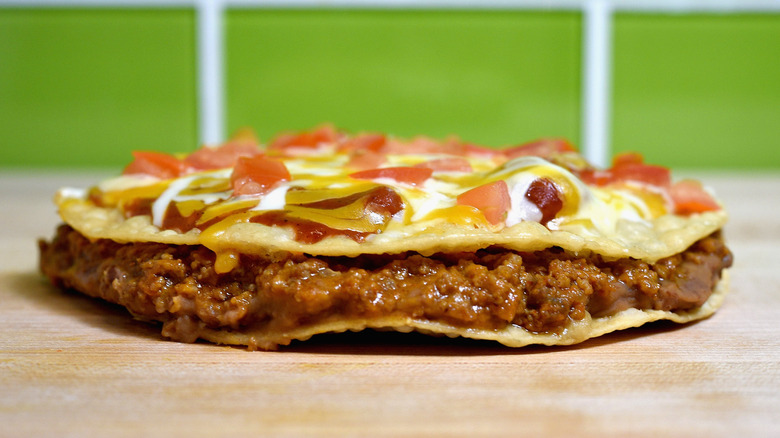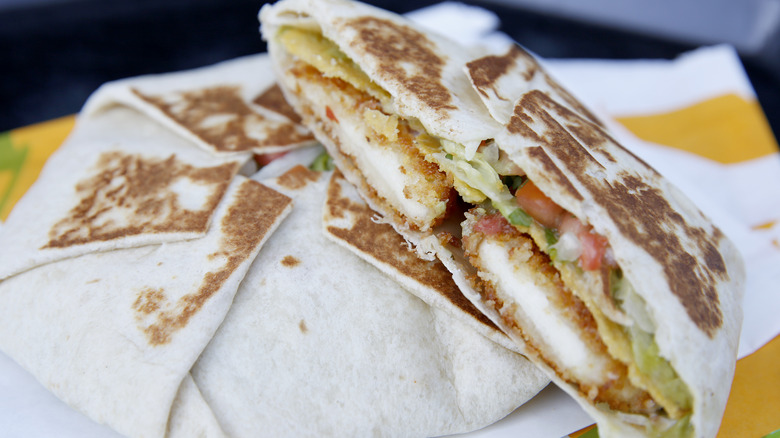Taco Bell Is Being Sued Over A Man's Disappointing Mexican Pizza
When that Taco Bell craving hits, many people run to place that order. But for one New York resident, the Live Mas mantra felt more like a "menos" when the food order arrived. While an older quick-service restaurant commercial questioned "Where's the Beef?," that commentary has taken a different turn in the New York District Court. Plaintiff Frank Siragusa filed a class action lawsuit against Taco Bell alleging that his purchased Mexican Pizza, as well as other Taco Bell items, did not live up to the advertising photos that created his purchase expectation.
According to court filings, Siragusa purchased a Mexican Pizza on September 20, 2022 with an expectation that the menu item would contain a "similar amount of beef and bean filling" as depicted in the food brand's advertisement. Siragusa alleges his purchase contained less than half of the expected beef and bean filling, documented with photo evidence. He asserts that he would not have purchased the dish if he had understood the lesser filing amounts.
While Siragusa had a personal experience with the Mexican Pizza, the lawsuit extends to a variety of Taco Bell menu items. Categorized as "overstated menu items," the group includes the Crunchwrap Supreme, the Grande Crunchwrap, the Vegan Crunchwrap, the Mexican Pizza, and/or the Veggie Mexican Pizza. Siragusa and his legal team are seeking various damages for the class due to the alleged violations of the New York Deceptive Acts and Practices Act.
Could an advertising beauty shot delve into false advertising?
Whether it's scrolling on social media or a promotion on a food delivery platform, visuals can entice orders for a particular item. But when that food arrives, it might not deliver the hype. That scenario is the basis for some class-action lawsuits that allege false advertising or deceptive practices within the quick-service restaurant industry.
The Russo Law Firm has represented many clients in class-action false advertising claims. From the recent Taco Bell filing to Burger King menu size complaint, the filings assert that food brands and their imagery don't represent the actual food purchased. Although some people might skip over the small print at the bottom of the photo, those words have a purpose. Like the "hot" warning on a McDonald's coffee cup, companies need to set the expectation with their consumers. Brands cannot mislead or inappropriately entice consumers to make a purchase. Grandiose imagery showing a pizza piled high with beef and beans creates an expectation that the guest will receive something similar. No one wants a bait-and-switch scenario, like the cheese sandwiches at the Fyre Festival.
Advertising does have an element of hyperbole. But when a brand crosses too far into the fictional realm, it can trigger false advertising lawsuits. Maybe the next time someone hits the drive thru, more care should be given to the food description versus the photo. A pre-cooked ¼ lb burger might not be quite as large when it's served between two buns.

